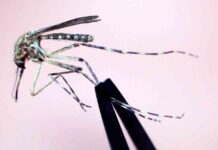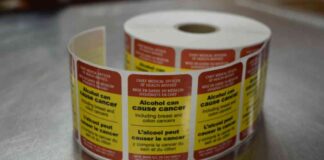Whooping Cough Cases on the Rise: What Women Need to Know
As the summer wave of COVID-19 continues to affect communities across the United States, another respiratory illness is making headlines – whooping cough. According to data from the Centers for Disease Control and Prevention (CDC), cases of whooping cough have seen a significant increase, with numbers three times higher than they were at this time last year. Specifically, there have been 10,865 recorded cases of whooping cough this year compared to 2,918 cases at the same time in 2023.
What is Whooping Cough?
Whooping cough, also known as pertussis, is a highly contagious bacterial infection that causes severe coughing fits. The CDC describes how individuals with whooping cough may make a high-pitched “whoop” sound when they inhale after a coughing fit. The coughing spells can be so intense that individuals may even vomit during or after the fits.
Vaccination for Whooping Cough
Fortunately, there is a vaccine available to protect against whooping cough. The vaccine is administered at different stages of life to ensure adequate protection. Dr. Thomas Russo, a professor and chief of infectious disease at the University at Buffalo in New York, emphasizes the importance of vaccination in preventing the spread of the illness.
How Often Should Women Be Vaccinated?
Whooping cough is targeted in routine childhood vaccines, starting with the DTap vaccine for children up to age six, followed by the Tdap vaccine for individuals 11 years old and older. The CDC recommends the following vaccination schedule:
– 2, 4, and 6 months
– 15 – 18 months
– 4 – 6 years
– 11- 12 years
– Pregnancy, during weeks 27- 36
– Adults every 10 years
Dr. Russo explains that the recent increase in whooping cough cases may be attributed to a “post-COVID effect.” With decreased social interactions over the past few years, there has been a decline in infections and immunity levels, leading to a resurgence of cases. He emphasizes the importance of maintaining routine vaccinations to prevent the spread of the illness.
Duration of Vaccine Immunity
The general guideline for the duration of immunity from the whooping cough vaccine is 10 years. However, pregnant women are advised to get vaccinated even if they have received the vaccine within the past decade. This is crucial in passing on immunity to newborns who are most vulnerable to the effects of whooping cough.
Should Women Get Vaccinated This Fall?
The decision to get a whooping cough vaccine this fall depends on individual circumstances. Pregnant women between 27 and 36 weeks are recommended to get vaccinated, while others can follow the 10-year rule. Dr. Russo stresses the importance of staying up to date with vaccinations to protect oneself and the community from the spread of whooping cough.
The Impact of Whooping Cough on Women
Women play a crucial role in the prevention and management of whooping cough, especially during pregnancy. The vaccine not only protects the woman herself but also provides immunity to her unborn child, offering protection during the vulnerable early months of life. The impact of whooping cough on women can be significant, highlighting the need for awareness and proactive measures to prevent the illness.
Subheading: The Importance of Vaccination for Pregnant Women
Pregnant women are particularly vulnerable to the effects of whooping cough, making vaccination a critical aspect of prenatal care. By receiving the vaccine during the second or third trimester, pregnant women can pass on antibodies to their babies, providing them with protection in the first few months of life. This practice has been shown to reduce the risk of severe illness and complications in newborns.
Subheading: Addressing Vaccine Hesitancy and Misinformation
Despite the proven effectiveness of the whooping cough vaccine, there is a growing concern around vaccine hesitancy and misinformation. Dr. Russo emphasizes the importance of educating the public about the benefits of vaccination and dispelling myths surrounding vaccine safety. By addressing these concerns, communities can work together to protect vulnerable populations from preventable diseases like whooping cough.
Subheading: Community Efforts to Combat Whooping Cough
In addition to individual vaccination efforts, community-wide initiatives play a crucial role in combating the spread of whooping cough. Public health campaigns, school vaccination programs, and healthcare provider outreach can help raise awareness about the importance of vaccination and encourage adherence to recommended immunization schedules. By working together, communities can create a protective shield against whooping cough and other contagious illnesses.
Conclusion
As cases of whooping cough continue to rise, it is essential for women to be informed about the illness and take proactive steps to protect themselves and their families. Vaccination remains the most effective way to prevent whooping cough and reduce its impact on individuals and communities. By following recommended vaccination schedules and staying up to date with immunizations, women can help create a safer and healthier environment for themselves and those around them. Let us all work together to combat whooping cough and ensure a healthier future for generations to come.

















